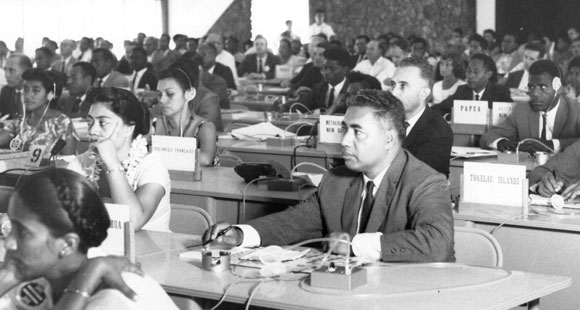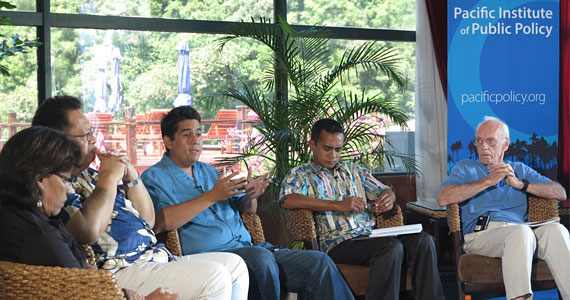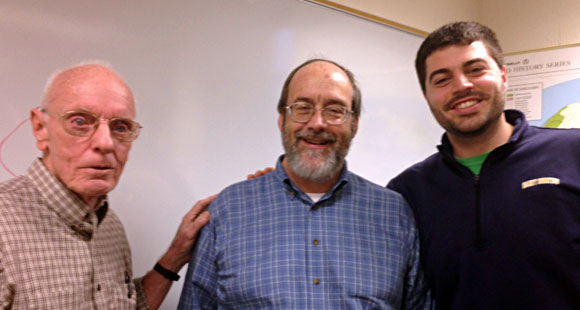Further Thoughts on the Pacific Economies Article
The article that is posted here has already drawn several responses, not as comments here but as emails.? Perhaps I should have posted a disclaimer.? I?m not an economist, as is probably obvious to those who have read the article, but only a dabbler with a fascination in the history of economies on the world stage. Even in that area the reading list I can draw on is embarrassingly short.
Most economists take a ?where there?s a will there?s a way? view of national economies, while my article takes a ?we?re all victims of our circumstances? approach to development.? Anything is possible, most development economists posit.? By the clock of world history, of course, it?s possible to imagine a radical change in circumstances.? Tourists may begin flocking to Kiribati at some point in the future, or new and valuable resources may turn up off the shores of Yap, or the world may yet find the rare ingredients for a wonder drug in the coral flats of the Pacific, or the Cook Islands might become the next international call center.? Maybe, but I?wouldn’t?count on it.? Certainly not in the short term?and that is precisely how the future is defined in the Pacific.
My own view is that some places are simply crippled by force of circumstances. Resources are scarce (especially the kind that can be traded on the world market), the marketing attraction of the location is offset by distance and small size, and the population is not likely to find top jobs in Silicon Valley.? There are places in the world, like Haiti, whose time has clearly not yet come.? Perhaps it never will.? But there are other spots, like the Seychelles, who are doing much better.? Is the difference simply that the economic planners in the latter did much better than in the former? Then, too, there are those places whose time has come and gone, like Nauru.
You?d think that I, of all people, would believe in miracles.? They can certainly happen, but most of us pragmatists?wouldn’t?put money on it.? Meanwhile, the nations of the Pacific have to find a way of providing a costly government?not because their former colonizers told them they had to do so, but because this is what it takes to be a part of the modern world today.? Education means good teachers who are getting a salary.? Health means access to modern drugs and services, that are paid for in dollars or euros or yen.? So the Pacific is doing what it can, under the circumstances, to hustle the money needed, even if this means packing off a third of its people to work abroad.? If the jobs?aren’t?to be found in the islands, then send the people to where they are to be found. If there are no products to be sold abroad, then sell off-shore banking or whatever else developed countries will pay for.
It?s a pragmatic approach by people who might like to believe in miracles, but don?t dare count on them.





